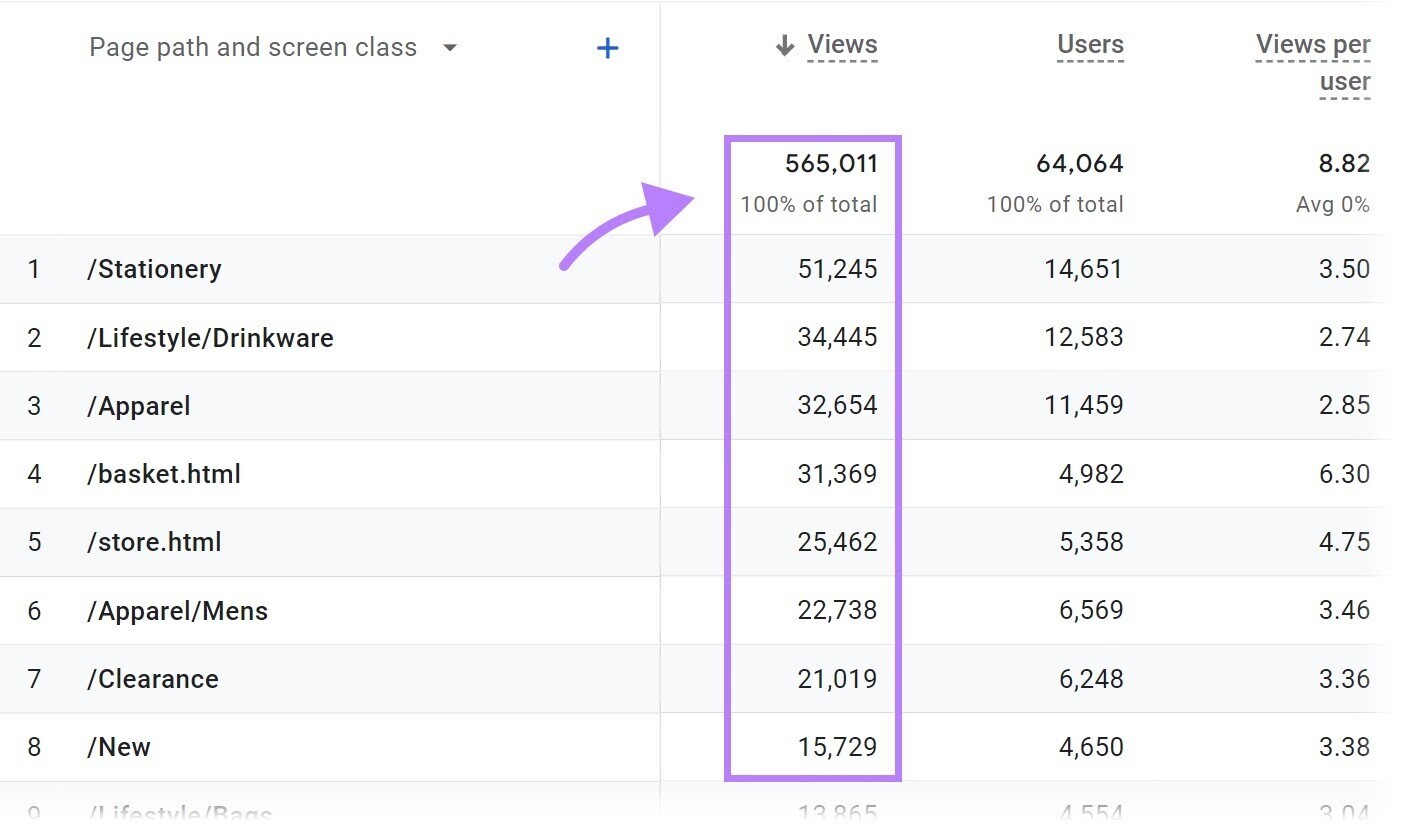The Influence of Google Analytics on Site Optimization and Efficiency Metrics
In the world of digital advertising, the application of Google Analytics has come to be identified with refining site efficiency and maximizing key metrics. From tracking visitor habits to assessing traffic sources, the effect of this durable device extends far beyond plain information collection. By delving right into the details of user interactions and material performance, Google Analytics empowers companies to make educated choices that can raise their on-line existence. As we browse through the complex internet of website optimization and efficiency metrics, the extensive influence of Google Analytics remains to shape the electronic landscape, using indispensable insights that transcend standard methods.
Tracking Visitor Behavior
Tracking visitor actions is crucial for recognizing individual interaction and optimizing internet site efficiency. By using tools like Google Analytics, internet site proprietors can acquire important insights right into exactly how visitors connect with their site. This data enables a deeper understanding of user preferences, habits, and the effectiveness of numerous site elements.
Assessing visitor actions supplies essential details on which pages are most popular, how much time customers remain on the website, and where they tend to hand over. With this info, website proprietors can make educated choices on material positioning, style improvements, and general user experience improvements.
Furthermore, tracking site visitor behavior allows the identification of trends gradually. By keeping track of metrics such as bounce price, conversion rate, and typical session period, site proprietors can assess the influence of changes made to the website and dressmaker techniques to much better involve site visitors.
Fundamentally, tracking site visitor habits via tools like Google Analytics is not almost collecting data however making use of that data to enhance internet site performance, enhance individual experience, and inevitably attain company goals. - what data does google analytics prohibit collecting

Studying Web Traffic Sources
Assessing the sources of traffic to an internet site is important for understanding where site visitors are coming from and just how they are finding the website. By using devices like Google Analytics, web site owners can get beneficial understandings into the performance of their marketing initiatives and the behavior of their target market. The traffic resources can be classified into several main networks, including direct website traffic (individuals who see the site straight), natural search (site visitors who locate the site via online search engine), referral web traffic (customers directed to the site from exterior web links), social media traffic (visitors from social systems), and paid advertising and marketing (users that clicked paid advertisements)
Comprehending the distribution of traffic throughout these various networks enables website proprietors to make enlightened decisions about their marketing strategies. By assessing traffic sources, site owners can maximize their advertising mix and enhance overall internet site efficiency.
Enhancing Content Efficiency
To make best use of the effect of website material, maximizing its performance is vital for bring in and involving visitors efficiently. By making use of Google Analytics, website owners can obtain useful understandings into how individuals connect with their web content, including which pages are most visited, just how long visitors stay on each web page, and what activities they take after checking out the find material.
Furthermore, Google Analytics supplies data on bounce rates, which can show whether the content is involving enough to maintain site visitors on the website. By analyzing this information, site owners can identify locations for renovation and make data-driven choices to improve the general performance of their content. In addition, tracking metrics such as conversion prices and click-through prices can assist measure the effectiveness of contact us to activity within the material, permitting further optimization to drive desired activities from site visitors. By continuously keeping track of and refining material performance based on insights from Google Analytics, internet site proprietors can produce a more interesting and easy to use experience for their target market.

Improving Individual Experience
Enhancing customer experience on a site is critical for boosting and fostering favorable interactions site visitor interaction. To boost individual experience, website proprietors can make use of Google Analytics to obtain beneficial understandings right into individual actions.
Google Analytics likewise provides information on tool usage, permitting site proprietors to optimize for numerous screen sizes and tools, guaranteeing a seamless experience throughout platforms. By tracking individual circulation and behavior, services can make informed decisions to boost the overall site experience. In addition, A/B testing features in Google Analytics make it possible for site proprietors to trying out various formats, content variations, and phones call to action to determine what reverberates ideal with users. Eventually, by leveraging Google Analytics understandings to boost individual experience, websites can raise interaction, drive conversions, and ultimately achieve their service objectives.
Improving Conversions
By leveraging data-driven insights from like it Google Analytics, web site proprietors can dramatically boost their approaches to enhance conversion prices properly. Recognizing customer actions with metrics such as conversion funnels, objective conclusions, and ecommerce monitoring permits organizations to determine areas for enhancement. A/B testing different components on a page, such as call-to-action my blog switches or develop layouts, based on information from Google Analytics can cause considerable boosts in conversion rates.
In addition, making use of Google Analytics to examine web traffic sources can aid services assign resources properly (what data does google analytics prohibit collecting). By recognizing which channels drive one of the most conversions, whether it's natural search, paid marketing, or social media, firms can enhance their marketing initiatives for maximum impact
Additionally, tracking individual engagement metrics like bounce price, typical session duration, and web pages per session can offer beneficial insights right into exactly how visitors engage with a site. By enhancing these metrics with data-driven techniques, businesses can produce a more compelling customer experience that eventually leads to higher conversion prices.
Final Thought
Finally, Google Analytics plays a vital role in enhancing web site efficiency by tracking visitor actions, evaluating website traffic sources, improving material efficiency, enhancing individual experience, and enhancing conversions. By utilizing the information given by this tool, web site proprietors can make enlightened choices to improve their general online visibility and attain their goals. It is necessary for services to take advantage of Google Analytics to continually monitor and change their methods for optimum effectiveness.
By evaluating web traffic resources, web site owners can maximize their marketing mix and boost general website performance.
By utilizing Google Analytics, web site proprietors can obtain valuable insights into how customers connect with their content, including which pages are most visited, how long visitors remain on each page, and what actions they take after viewing the content. (what data does google analytics prohibit collecting)
To improve user experience, website owners can utilize Google Analytics to gain beneficial insights into user behavior. Additionally, A/B testing attributes in Google Analytics allow web site proprietors to experiment with various formats, material variations, and calls to action to determine what reverberates ideal with individuals.In final thought, Google Analytics plays a vital function in optimizing website efficiency by tracking site visitor habits, examining web traffic sources, enhancing material efficiency, improving user experience, and enhancing conversions.